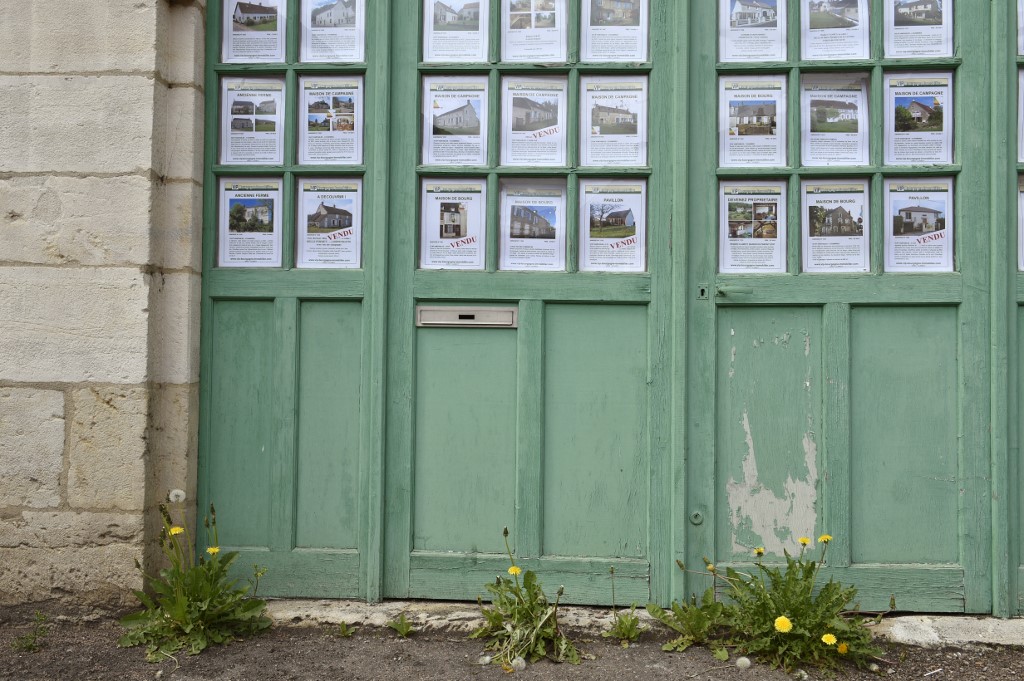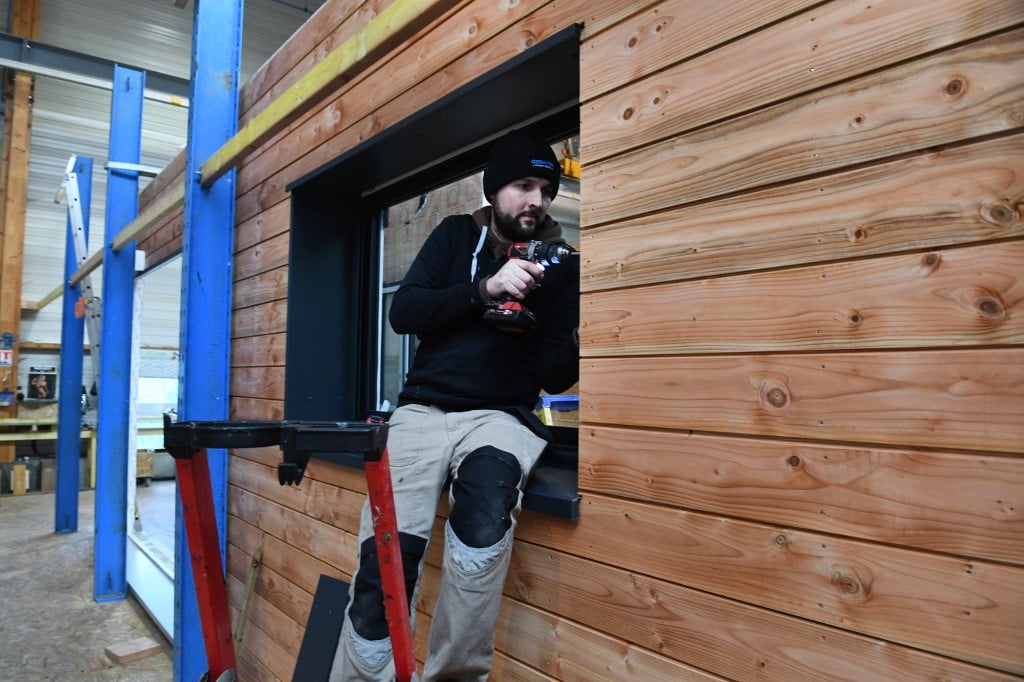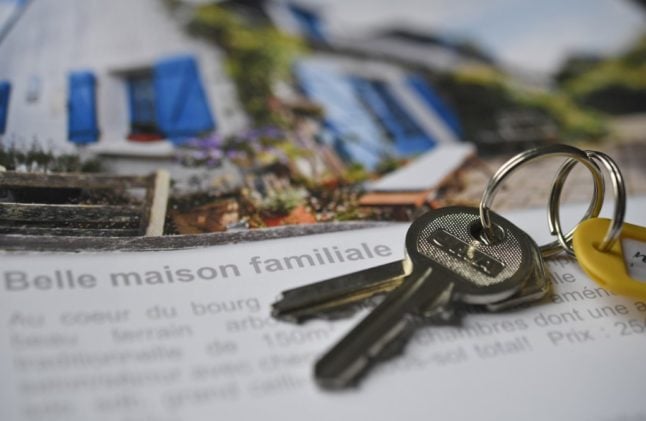1. Do you need to buy rather than rent?
For many people the ultimate dream is buying their own place in France. But buying property anywhere can be a risky business, especially in a country where you don't know the system and may not speak the language very well.
So why not rent instead, at least at first?
There's a popular misconception that owning property in France gives you extra rights in terms of residency but in fact that is not true – residency is counted on being a full-time legal resident in France, whether you own or rent your home is immaterial.
Renting gives you time to more thoroughly research your new home and you won't feel the pressure to make a hasty purchase.

Check out places to rent as well as to buy. Photo: AFP
2. Research the area thoroughly
This particularly applies if you are buying in a rural area. Yes, la France profonde is beautiful, but it can also be lonely, isolated and with poor services – especially in the winter.
If you have only ever visited an area in summer you should definitely check it out in the winter to see if you still like it without those evenings sipping rosé on a sun-drenched terrace. Shops, bars and restaurants in tourist areas often close up for the winter so you need to see what will be open during the colder months.
Also think about the boring but practical questions – are there medical services nearby if your health starts to fail? What are the public transport options if you can no longer drive? And will there be people nearby you to help out in an emergency?
If you intend to work from your new home check that your mobile gets a signal and ask locals about the internet connections, which are notoriously poor in some parts of rural France.
3. Research the housing market thoroughly
This applies to buying everywhere of course, but you do need to check that your new home is not a crumbling death trap that will cost you thousands to make habitable.
Surveys are not as common in France as when you buy in the UK, so if you're not an expert, ask a builder or surveyor to look it over for you.
This particularly applies if you want to buy an old place as a renovation project.
If you are not an expert get some advice beforehand on how long the restoration will take and how much it is likely to cost – it's not as easy as Dick Strawbridge makes it look on Escape to the Château.
READ ALSO 'Double your budget and make friends with the mayor' – readers share their expert renovation tips
If your dream place needs a major renovation then think about where you are going to sleep, cook and wash/go to the toilet while you are making your new place habitable.

If you're taking on a renovation project, get a clear idea of the costs in advance. Photo: AFP
4. Be aware of the hidden costs
As mentioned, the cost of renovations can easily end up spiralling, but even if your place is ready to move into straight away there are extra costs to be aware of.
On top of the cost of the house there is also the notaire fee – which can be in the tens of thousands of euro.
This fee is the cause of much confusion for foreign buyers – although it's known as the notaire fee, the notaires themselves only keep a small percentage of it. The rest goes to the French state as a registration fee, so it's really more equivalent to stamp duty or property taxes.
The fee depends on the cost of your house, where you buy and whether it is old or new – find the fee calculator here.
You also need to factor in annual property taxes – taxe foncière is the property owners' tax and taxe d'habitation is the householders' tax. If you own your own home you pay both – although taxe d'habitation is in the process of being phased out.
There will also be a fee payable to the commune for rubbish collection and a TV licence fee, as well as the usual utility bills.
READ ALSO The real cost of buying property in France
5. Don't trust people just because they're your compatriots
While it's tempting to go with the friendly Brit or American who speaks your language, you need to check out everyone that you are planning on working with or giving money to.
Sad but true, every year newbies to France get conned by plausible sounding British agents, builders or accountants.
If you need the services of a builder, plumber or electrician do as you would elsewhere and get at least three different devis (formal price quotes) as well as asking for the person's SIRET number.
This is a business registration number that allows you to check that the person is registered for the trade they are quoting for and allows you to take legal action against them if it becomes necessary.
As well as checking they have a SIRET number, you need to check what they are registered as – so for example if you want them to install electrics you need to check they are registered as an electrician, not as a builder or a plumber.
READ ALSO How to avoid getting conned by rogue traders in France

You may need to take a long look at your finances first. Photo: AFP
6. Do you have enough money to stay here?
Forgive us for asking such a personal question, but it's something that French authorities will be asking you when you come to make your visa/residency application.
Visas, particularly for those intending to retire to France, have some quite stringent financial requirements and you will need to prove that you have sufficient income (for example a pension) or savings in order to stay in France for the long term.
READ ALSO How much money do I need to stay in France after Brexit?
So while it's tempting to retire early or scale back your work so you can make the move now, you do need a long hard look at your finances first.



 Please whitelist us to continue reading.
Please whitelist us to continue reading.
The question of pre purchase surveys here as mentioned is often, sadly, overlooked with sometimes dire consequences. It is all well and good suggesting the local electrician, builder, surveyor, plumber etc to give the property a “look over”, but this is, as stated, invariably, cursory and often not backed up by professional insurance guarantee and hedged in “t & c’s”. There are some professional French registered British qualified and insured quantity surveyors operating in France who carry our full comprehensive British style surveys and I would recommend using them even if their service might be pricey.
When choosing a location it is also a good idea to check out the commune in which you will be living. Some are much more welcoming and active than others. Attending local functions including the mayor’s annual address is a good way of assessing the area.
Excellent advice here. As well as being cautious about using British builders etc. be very careful if you are buying from Brits. They know what you don’t know as do British Estate agents. Sadly, they are not all to be trusted.